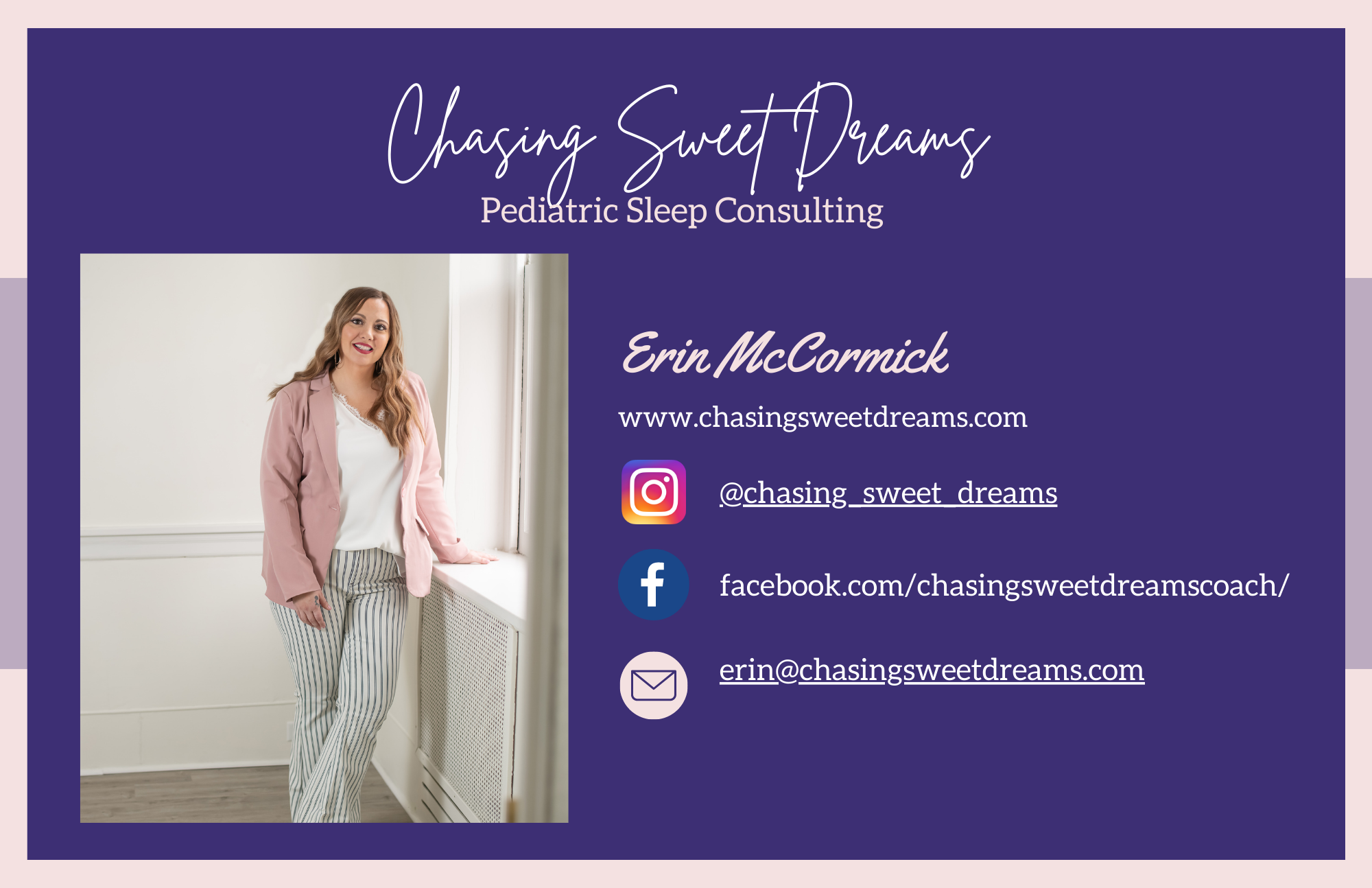Newborn Sleep Months 1-3
Everything you need to know about newborn sleep, from creating a soothing environment and establishing healthy routines, to helping your baby breastfeed or bottle-feed at night. Learn what newborn sleep patterns are, how long to expect them to last, and the best ways you can help your little one get more rest.
No one ever tells you how hard it is to get newborn sleep. Everyone just tells you that your baby will sleep through the night soon and to enjoy those early days. But, what happens when your precious little one isn’t sleeping? Do you struggle with trying to figure out what is wrong and how to fix it? Well, this blog post is for you. In it, we will cover some basics of newborn sleep so that hopefully you can get the rest that you need. And remember, if things are still tough after reading this post, don’t hesitate to reach out for help from a professional. Thanks for reading!
In this blog, we will cover the following about newborn sleep:
- How Much Sleep Does Your Newborn Need
- 4 Things You Need To Know About Newborn Sleep Months 1-3
- Your Sleep Goals For Months 1-3
>>>>>>Download the “Where To Start When Baby Won’t Sleep” guide here!! <<<<<!
How Much Sleep Does Your Newborn Need
Your newborn baby, 1 to 3 months of age, needs roughly 16 to 20 hours of 24-hour sleep.
According to the American Academy of Pediatrics, newborns need 16 to 17 hours of overall sleep including daytime naps.
In my experience of working with newborns, the range of amount of sleep they need tends to be:
- <2 Months: 16 to 20 hours
- 3 Months: 15.5-18 hours
This is total sleep including naps and nighttime interruptions. There is a large amount of variation from child to child.
5 Things You Need To Know About Newborn Sleep Months 1-3
1. Newborn’s Sleep Regulation Systems Are Weak
There are two systems that help guide our sleep patterns. The circadian rhythm is related to light and melatonin and our homeostatic system which is related to cortisol release.
Melatonin is inhibited by light during the day and is released at night time and signals your brain it’s time to sleep.
Cortisol decreases at night, increases in the morning, and starts our day and gets us up and moving.
In babies 0-3 months, these systems are not yet strong and well developed. They often rely on mama’s signals to guide them.
Melatonin, the sleep signaling hormone, isn’t produced by an infant until about 3 months of age. Until this time, a baby receives melatonin through its mother’s breast milk. So there is some thought that if you pump breast milk, you should include the time of day it was accumulated and deliver it at the same time of day. There is evidence to show that breastfed babies have better sleep cycle regulation than formula-fed babies due to this influence.
2. Newborns Waken More Easily
An adult sleep cycle has many “deep sleep” cycles. In deep sleep, adults can sleep through trains, barking dogs, and loud snorers. Newborns have fewer deep sleep cycles and more “lighter sleep cycles” which means they may wake more easily than adults. Barking dogs, construction, and squeaky floors are not your friend.
In between sleep cycles, there can be “arousals.” For an adult, this looks like waking when you roll over and change positions or check the clock and go right back to sleep. Babies cycle through sleep cycles more quickly than adults and so they may have more “arousals.” However, they are often in a semi-conscious state but still may make noises. Parents can often mistake these for being completely awake. If you jump up to comfort your baby you might actually be waking them up more in these stages. Can you wait 2-5 minutes and see if the noises pass and your baby settles back into sleep? Sure you can!!
3. Newborn Sleep Amounts Vary Widely
Iglowstein 2002 showed that newborn sleep amounts vary widely in quantity. This includes nighttime sleep amounts and nap lengths. I’ve worked with parents who can only get 40-minute naps during the day but their baby wakes up happy and content. Their best friend seems to get 2 -3 hour naps. Why the difference? We’re not sure. The most important thing is that your baby seems content on waking and that you’re in the overall 24-hour range of 16-20 hours at 2 months and 15-18 at 3 months.
4. Sleep Pressure Builds Even at This Age
Part of the science of sleep is related to the build-up of a protein in your blood called Adenosine. It’s part of the ATP molecule that your body uses up for energy and metabolism. Babies are growing exponentially. They need to eat frequently to provide fuel for growth. They break down ATP and use it for fuel. A byproduct of that is the build-up of adenosine which signals your brain that it’s time to sleep. This is why newborns need so many naps. They get tired with all that growing!
What we have observed over time is that most newborns do best if they are back to sleep during the day after being awake between 45 minutes and 1.5 hours. Surpassing that “awake time” makes it harder for your baby to fall asleep and then stay asleep. Staying awake too long during the day can lead to more frequent night wakings and fussier babies.
5. This is not the Time for “Sleep Training” AKA Sleep Teaching
The drive to sleep is biological. It’s related to those circadian and homeostatic systems. The way we sleep, however… is a learned habit. “Sleep training’ happens when you are trying to teach a new way of falling asleep to your little one.
I prefer the term “sleep teaching” over “sleep training’ as that’s what we’re doing, teaching your little person the self-soothing skills of relaxing into sleep.
Unfortunately, your little one has a personality and opinions by that age and they will protest change, leading to some tears. This can occur at 4 months or later. However, in the 1-3 month period, you can work on preventing the need for dramatic changes after 4 months of age. You can be working on healthy sleep habits now. Between 4 and 8 weeks there is a short window when new habits are being formed. Putting your little one down calm but awake and working on feeding on wake up rather than put down are two simple things that you can do to help.
With my newborn package, Sleep Shaping for newborns, we teach no tear approaches to:
- Help you become a sleep detective
- Figure out why your baby might be fighting sleep
- Understand how much sleep your little one needs and when
- Strategies to help make sleep happen
You can learn more about the class here: https://www.chasingsweetdreams.com/product/newborn/
Your Sleep Goals For Months 1-3
1. Keep Your Little One Well Rested
This helps minimize the fussies and those long stretches of being awake in the night.
2. Using methods to help your little one sleep that you can maintain
Sleeping on you is lovely and adorable (although technically not approved for safe sleep by the AAP). However, it is very hard to maintain sleep habits of a baby that will only sleep on someone. You want your baby to be able to sleep in a crib or bassinet.
3. Honing Your Parenting Sleep Skills
Learning to differentiate your baby’s cries and body movements can help you figure out why your baby is fighting sleep and help you address the root issue so you can move on and get sleep to happen.
4. Setting up Healthy Sleep Habits
Since we know sleep is a learned behavior, let’s work on our long-term goals for sleep which will be to be able to fall asleep from awake in the crib. It might not work every time and you’ll need to step in and help, but why not start thinking it is possible?
Final Thoughts
Congratulations on your new addition! As a sleep-deprived parent of a newborn, you’re probably wondering how to help them sleep. Luckily, we can create healthy sleep habits from the start by following these simple tips. Check out my Sleep Shaping For Newborns package or Essential Keys To Newborn Sleep to get started to more restful sleep.
I have so much more I want to teach you about baby and toddler sleep and how you can help your baby!
Follow me on Instagram and check out my daily stories.
Do you like what I have to say? Send me an email or set up a discovery call! I am here for you!
Sending sleepy vibes and sweet dreams your way!
Erin McCormick
Your Pediatric Sleep Specialist


